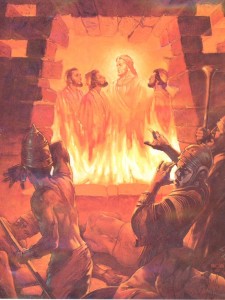I’ve been contemplating Sabbath rest, 7th Day imagery, Year of Jubilee, and related topics. The Bible Project Podcast had an excellent series on 7th Day Rest, Sabbath, and related topics last fall that I have finished up, and it gave a lot of insight into how this topic permeates the entirety of scriptures. I highly recommend taking some time to reflect on it if you have not done so.
In light of the COVID-19 pandemic, while conferences are cancelled, travel is discouraged and even restricted, and we are being told to practice “social distancing,” I think there’s a lot we can gain from this topic. Churches may be forced to discontinue some form of weekly gatherings, and I think that’s okay, as our highest priority is love.
The sabbath idea was not just weekly, God also instituted a 7th year rest, where the land was not supposed to be cultivated, but it would produce enough, not just for the owner and his family, but for slaves, workers, sojourners, cattle and even wild animals (Lev 25:6-7). Wow! What a thought that there’s no slaving over the land to get what is needed to survive, but by trusting in God, there is more than enough. The year of Jubilee was also a big topic. Land was returned to the original owner, slaves were freed, and debts were forgiven (Lev 25:8ff).
Unfortunately, the Israelites failed to do as they were commanded. God had given strict warning about failure to keep these practices.
“But if in spite of this you will not listen to me, but walk contrary to me, … I myself will devastate the land, so that your enemies who settle in it shall be appalled at it. And I will scatter you among the nations, and I will unsheathe the sword after you, and your land shall be a desolation, and your cities shall be a waste. Then the land shall enjoy its Sabbaths as long as it lies desolate, while you are in your enemies’ land; then the land shall rest, and enjoy its Sabbaths. As long as it lies desolate it shall have rest, the rest that it did not have on your Sabbaths when you were dwelling in it.”
Lev 26:27,32-34
Just as promised, the prophecy was fulfilled.
He took into exile in Babylon those who had escaped from the sword, and they became servants to him and to his sons until the establishment of the kingdom of Persia, to fulfill the word of the LORD by the mouth of Jeremiah, until the land had enjoyed its Sabbaths. All the days that it lay desolate it kept Sabbath, to fulfill seventy years.
2 Chr 36:20-21
Perhaps in our hustle and bustle, as we have overdone our own schedules, take this time of quarantine as a time to rest. Enjoy the presence of God.
In Christ, we find our rest. Find comfort in these words of Christ.
“Come to me, all who labor and are heavy laden, and I will give you rest. Take my yoke upon you, and learn from me, for I am gentle and lowly in heart, and you will find rest for your souls. For my yoke is easy, and my burden is light.”
Mat 11:28-30


 Nebuchadnezzar was a very powerful, and very bad man. He captured many nations, and was responsible for the death of many as he conquered the people of the middle east. I would compare his acts to those of Hitler or Stalin to the people of his day.
Nebuchadnezzar was a very powerful, and very bad man. He captured many nations, and was responsible for the death of many as he conquered the people of the middle east. I would compare his acts to those of Hitler or Stalin to the people of his day.